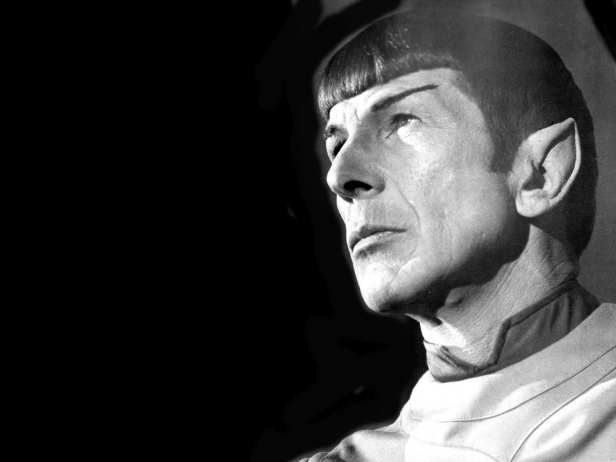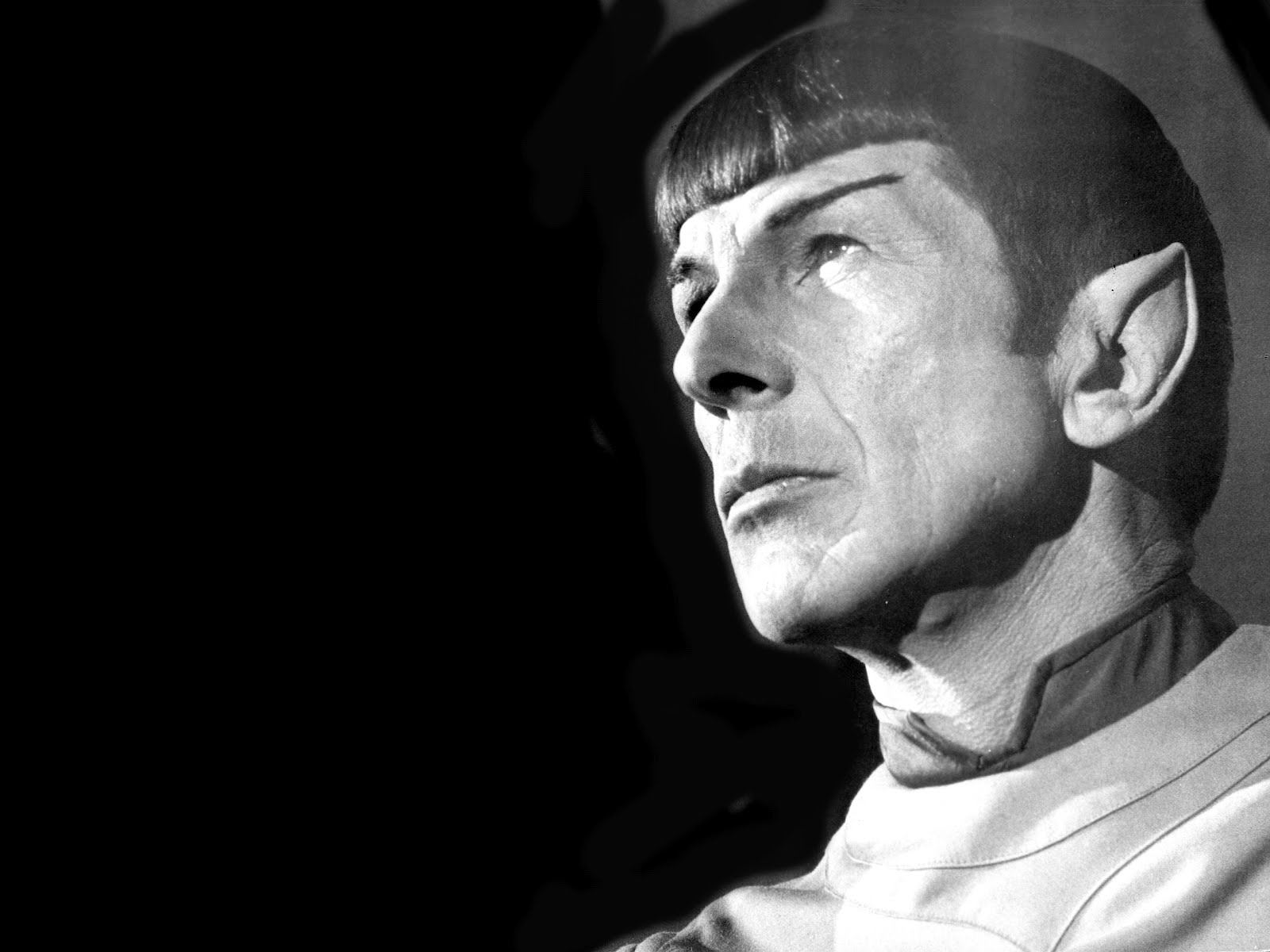
It was nearly 30 years ago, but I can remember nervously placing my cassette recorder on his desk, clicking record and asking him, “So, ready for another up-close and personal interview?”
“Oh, yeah,” he sighed.
Yet once Leonard began to speak, he came to life, his words filling with vigor, his manner expressing the enthusiasm of a child playing with a new toy that he was finally ready to share with the rest of the world.
As he spoke and I studied his facial expressions, I found myself in an interesting position. On the one hand, sitting there was an actor/director whose growth as an artist was impressive and whose words conveyed a great sense of thoughtfulness, intelligence and humour. On the other, an occasional statement, turn of the head or slight cocking of an eyebrow couldn’t help but convey the essence of Mr Spock.
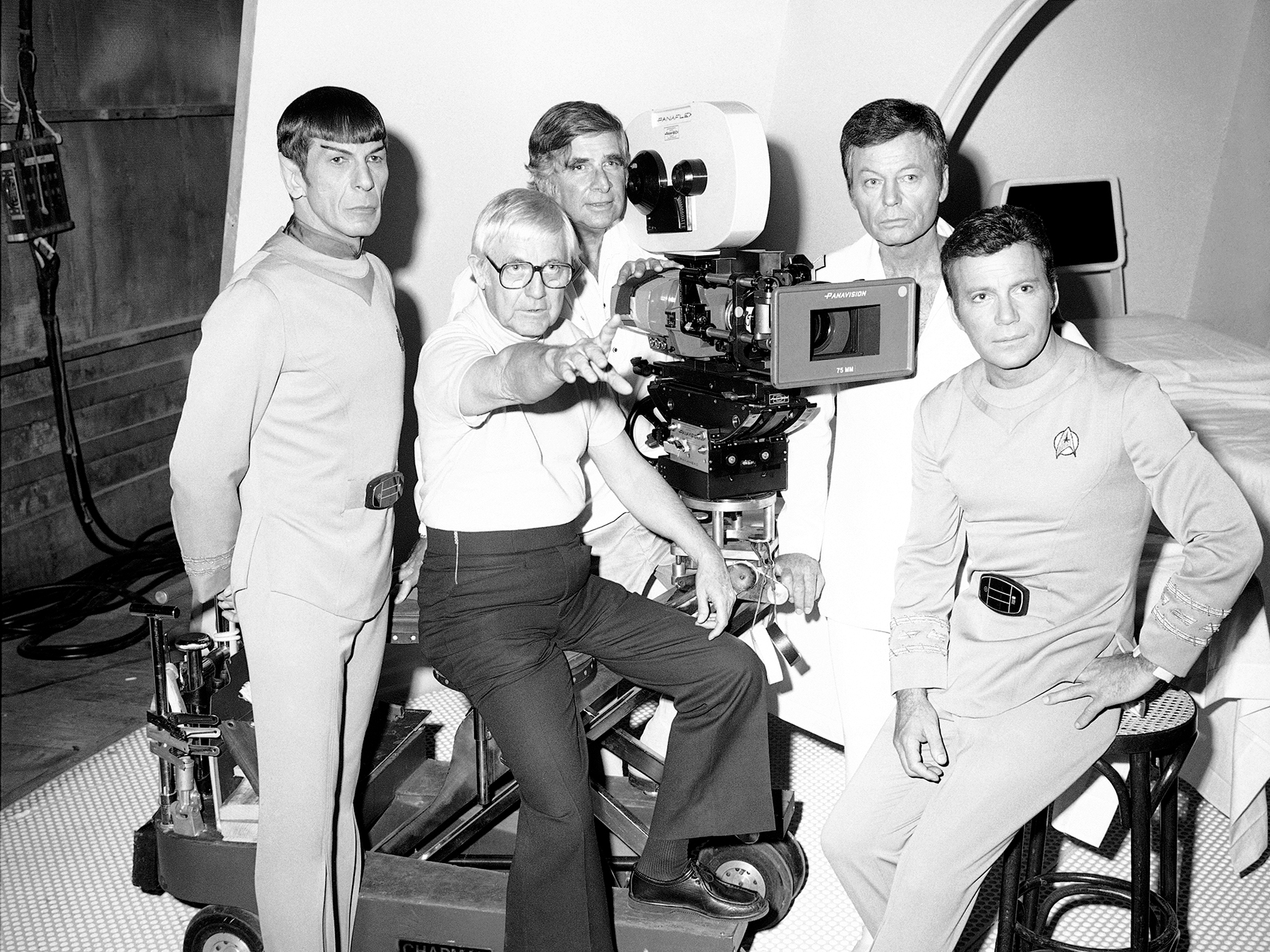
Star Trek writer/story editor Dorothy Fontana explained to me, “Gene Roddenberry asked me to read the first bible for Star Trek in 1964. This was the very first proposal; the series presentation. I read it and said, ‘I have only one question: who’s going to play Mr. Spock?’
“He pushed a picture of Leonard Nimoy across the table. I, of course, knew Leonard because he had appeared in my first [script sale], The Tall Man.”
Roddenberry himself added, “Leonard Nimoy was the one actor I definitely had in mind. We had worked together when I was producing The Lieutenant. Leonard had been a guest star and I was struck at the time with his high Slavic cheekbones and interesting face. I said to myself, ‘If I ever do this science fiction thing I want to do, he would make a great alien.'”
That alien, of course, was Vulcan/human hybrid Mr Spock, science officer of the starship Enterprise, who would constantly wage an inner struggle between his two halves.
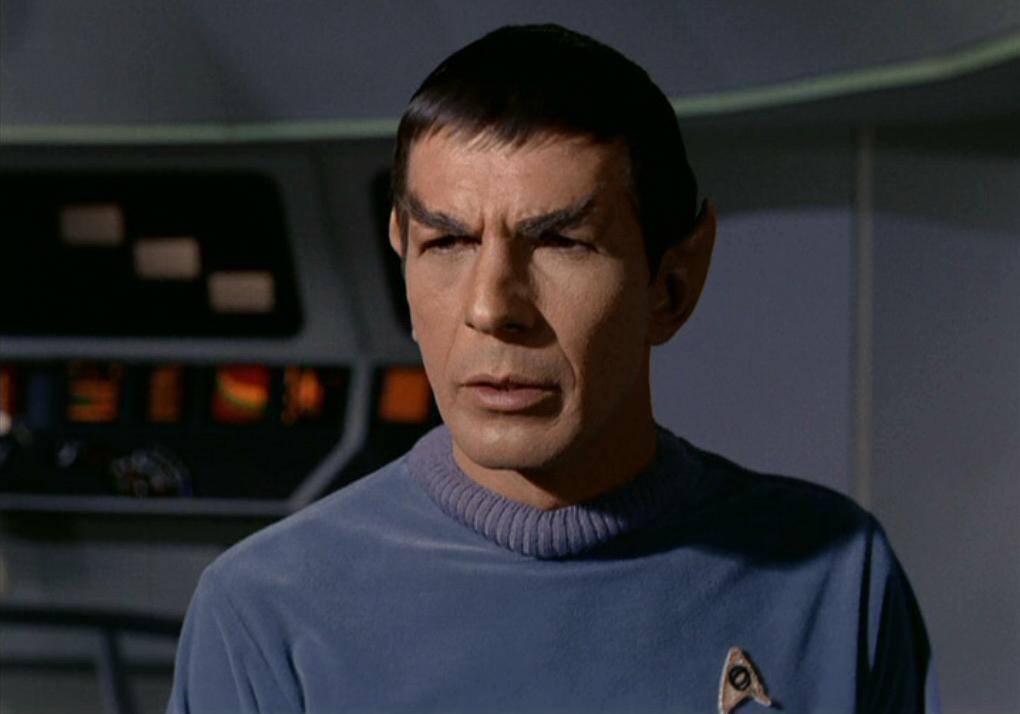
Robert Butler, who directed Leonard in ‘The Cage’, observes, “Spock was an extremely attractive character right off the bat. Leonard was always thought to be a very fine character actor, really, who was able to make the audience think that Spock was foreign, but not so foreign that he was inaccessible and uncomfortable for the audience. We could make the jump to his planet without it causing us any emotional discomfort. That’s where the success of his character lies.”
Between the first and second pilots of Star Trek (the second being ‘Where No Man Has Gone Before’), Leonard’s Spock went through a marked transformation. Whereas the first episode had moments of unbridled emotion, for the most part the emotionalism was gone, and would further be buried as the character transitioned to the weekly series.
When I met with director Joseph Sargent, the conversation turned to his directing the first weekly episode of Star Trek, ‘The Corbomite Maneuver’, and thoughts of Leonard.
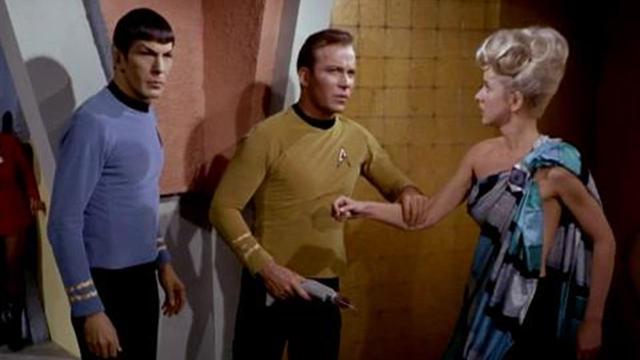
“He was unhappy because his character was without emotion,” reflected Sargent. “He said, ‘How can I play a character without emotion? I don’t know how to do that. I’m going to be on one note throughout the entire series.’
“I agreed with him and we worked like hell to give him some emotional context, but Gene said, ‘No way, the very nature of this character’s contribution is that he isn’t an earthling. As a Vulcan, he is intellect over emotion.’ Leonard was ready to quit, because he didn’t know how he was going to do it.”
But as Leonard conveyed, he came up with a personal solution: “Spock is not a character without emotions; Spock is a Vulcan who has learned to control his emotions. But believe me, 12 hours a day, five days a week of controlling your emotions can have some strange effects on you.
“I remember one time in a meeting room having a conference with a couple of writers and suddenly finding myself crying for no reason at all. The emotions just had to come out somewhere, sometime. So I welcomed the opportunities to do scenes or episodes where Spock had some kind of emotional release.”
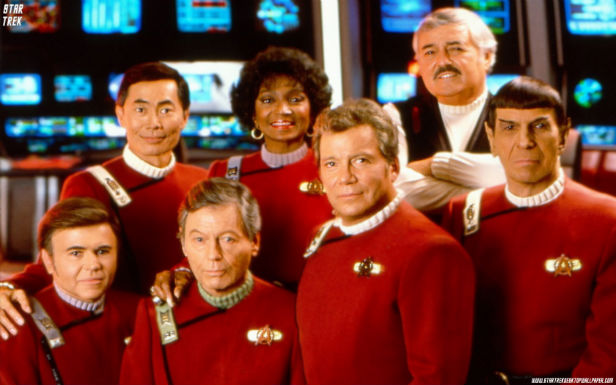
Leonard’s portrayal of Spock quickly ended up creating an emotional release in the show’s viewers, almost instantly elevating the character’s popularity and turning the actor into a cult hero. The end result was that Spock and Kirk became a team; a team that would define the original Star Trek from that point forward and whose essence would still be felt in JJ Abrams’ 2009 franchise reboot.
When Star Trek ended its run in 1969, Leonard quickly proved himself to be the most successful of the cast, immediately replacing Martin Landau on the original Mission: Impossible, appearing on Broadway in the 1973 revival of Full Circle and the 1974 production of Equus, in between voicing the character of Spock in Star Trek: The Animated Series.
At the beginning of that 1973-74 series, he proved the depth of the person he was. To save money, the production had initially decided not to include Nichelle Nichols and George Takei, even though their characters would be visually represented but voiced by, respectively, Majel Barrett and James Doohan.
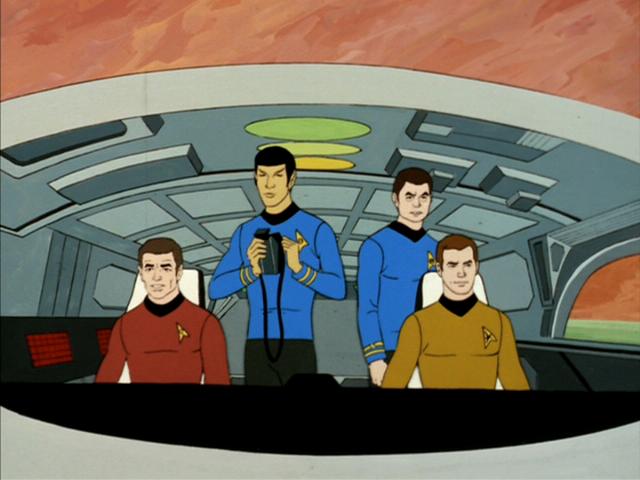
Said Leonard, “That’s when I took my stand. Not only had they not been hired, but their characters were written in the show and being played by other people. I was appalled! How could they do this?” Well, they didn’t: When Leonard threatened not to do the show unless the situation was rectified, it was indeed taken care of.”
Throughout the rest of his career, Star Trek was ever present.
There was disappointment (Star Trek: The Motion Picture), great joy (Star Trek II: The Wrath Of Khan), opportunity (directing Star Trek III: The Search For Spock and Star Trek IV, which led to numerous non-Trek films, including Three Men and a Baby), and a sense of closure (Star Trek VI: The Undiscovered Country, plus a two-part appearance on The Next Generation).
And then, of course, there was his appearance as ‘Spock Prime’ in the 2009 film from JJ Abrams. I interviewed Leonard regarding that film, and it was clear that he had reached an interesting perspective on his life.
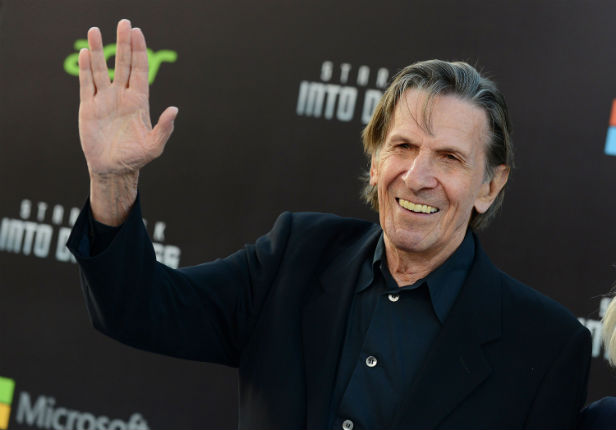
“I’m much more settled, much more comfortable with whom I am, where I am and what has become before and what I see before me,” he related.
“I’m extremely satisfied that I’ve had a lot of great opportunities and put out a lot of energy and been involved in a lot of very interesting work. And now my personal life has taken a much more prominent place. I do a lot of photography, which is very gratifying and that’s my creative outlet. I just feel very comfortable with where I’ve arrived at.”
It was clear that that comfort was settling in as far back as 1986, when we sat in his office in New York’s Gulf & Western building and he expressed feeling about the Star Trek phenomenon that would stay with him until the end.
“I get used to it and I’m amazed by it,” he offered. “Somebody was saying to me today that at times in our lives you feel like a particle of matter, and there are other times when you feel as though you are part of a very large process. You step back and say, ‘Wow!’ It’s the ‘Wow!’ that catches up with me still once in a while. It’s still going strong. It’s spanning generations. Kids have grown up and had children who are now watching the show. It’s quite extraordinary.
“I’m very grateful that it happened,” Leonard Nimoy concluded our conversation. “I feel a great sense of accomplishment. Overall we’ve done some great work. I hope that I haven’t taken myself too seriously too often. I hope that the general fallout is positive. I think it is.
“I’m very pleased when I hear that people’s lives have been affected positively in one way or the other because of Star Trek. I have often said that if I had to choose between characters that I would have to be identified with, I would choose Spock.
“In general, I’ve had very good, positive feelings about it.”
Leonard Nimoy died 27 February 2015. Our thoughts go out to the friends and family of this irreplaceable science fiction icon, a man who embodied the hopeful future that Star Trek aspired to create.
